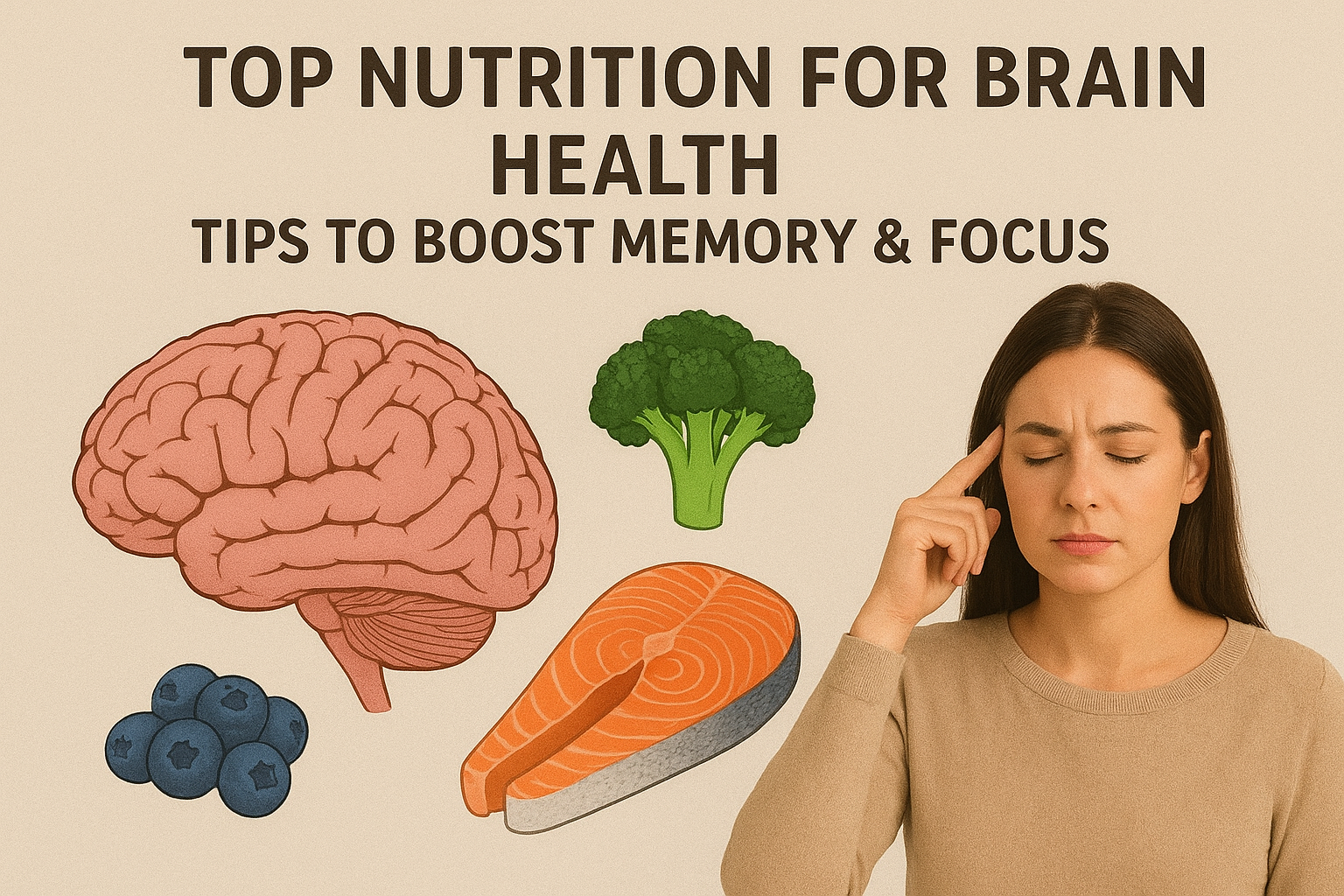The human brain is a powerful and complex organ that controls thought, memory, emotions, and movement. Even though it makes up only about 2% of body weight, it uses around 20% of the body’s energy. This high energy use shows how important it is to support the brain with the right foods. Good nutrition for brain health is essential to keep the brain working well throughout life.
What we eat plays a big role in how our brain functions. Nutrients like omega-3 fatty acids, antioxidants, and vitamins are known to improve memory, focus, and overall mood. Foods rich in these nutrients—such as fish, berries, nuts, and leafy greens—can help protect the brain from age-related decline and support better mental performance.
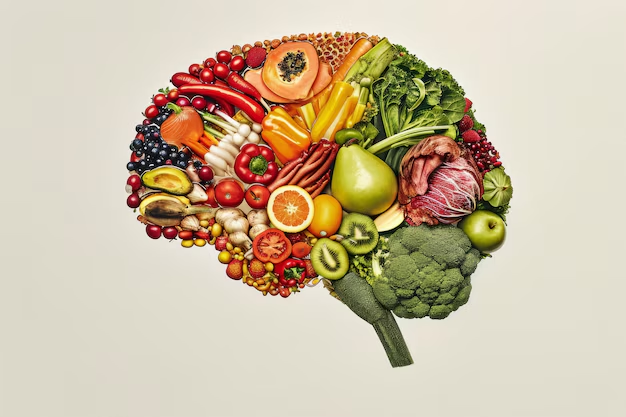
To support your brain every day, try adding more brain-boosting foods to your meals. Drinking plenty of water, limiting sugar, and eating balanced meals are all easy ways to improve nutrition for brain health.
The Connection Between Nutrition and Brain Function
The brain needs a constant supply of nutrients to work properly. These nutrients support important processes like making neurotransmitters, sending signals between brain cells, and repairing cells. Without the right fuel, the brain can’t perform at its best.
Good nutrition for brain health helps protect the brain from damage. Nutrients also act as antioxidants, shielding brain cells from stress and helping them recover. This support is key to keeping the brain sharp and healthy over time.
On the other hand, a poor diet can lead to problems. When the brain doesn’t get the nutrients it needs, it may increase the risk of mental health issues. Conditions like depression, anxiety, and memory loss are often linked to poor eating habits. That’s why improving nutrition for brain health is important for both mental and physical well-being.
Key Roles of Nutrition in Brain Health:
Neurotransmitter production: Amino acids found in protein-rich foods play a key role in the production of important brain chemicals like dopamine and serotonin. These chemicals help regulate mood, focus, and emotional balance, showing the importance of proper nutrition for brain health.
Neuroprotection: Antioxidants and healthy fats provide strong protection for brain cells by reducing damage caused by oxidative stress. Including these nutrients in your diet supports long-term brain function and highlights how nutrition for brain health helps prevent cognitive decline.
Neurogenesis: Some specific nutrients promote the growth of new brain cells and the development of fresh neural connections. This process is essential for learning and memory, making nutrition for brain health an important part of keeping the brain active and adaptable.
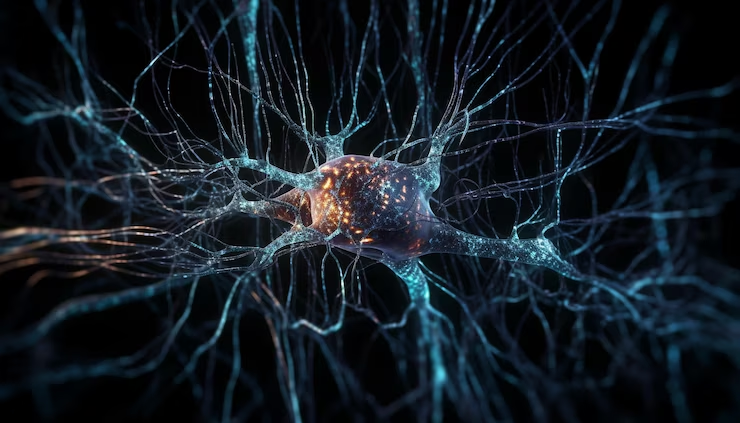
Brain energy: Carbohydrates supply glucose, which is the brain’s main source of energy. Stable energy levels from healthy carbs are vital for maintaining focus, mental clarity, and overall nutrition for brain health.
Essential Nutrients for Brain Health
Omega-3 Fatty Acids
Polyunsaturated fats play a very important role in brain function. They help build strong and flexible brain cell membranes, which are the outer layers of brain cells. These fats also support smooth communication between brain cells, which is needed for clear thinking, memory, and learning. Including them in your meals is a smart way to support long-term brain health.
When it comes to nutrition for brain health, polyunsaturated fats are one of the key nutrients to focus on. They help protect the brain from damage and support mental performance. Foods rich in these healthy fats, such as fatty fish, flaxseeds, and walnuts, can make a big difference in how well your brain works. Eating these regularly helps keep your brain active and strong.
Benefits:
Supports memory and learning
Reduces inflammation
Lowers risk of Alzheimer’s and depression
Sources:
Fatty fish (salmon, mackerel, sardines)
Walnuts
Flaxseeds
Chia seeds
Fish oil supplements
B Vitamins
Vitamins B6, B9 (folate), and B12 are very important for brain development and daily brain function. They help make neurotransmitters, which are the brain’s chemical messengers. These B vitamins also support better memory, focus, and mood, making them essential for clear thinking and emotional balance.
When talking about nutrition for brain health, these B vitamins play a key role. They help protect brain cells and may lower the risk of mental decline as we age. A diet rich in leafy greens, eggs, whole grains, and legumes can help you get enough of these important nutrients. Including these foods in your meals is a simple way to keep your brain healthy and support mental performance every day.

Benefits:
Help regulate mood and reduce depression
Prevent brain shrinkage
Support neurotransmitter function
Sources:
Leafy greens (spinach, kale)
Eggs
Legumes
Whole grains
Meat and dairy
Antioxidants
Vitamins C and E, along with flavonoids and polyphenols, are powerful antioxidants that help protect the brain from oxidative damage. Free radicals, which are unstable molecules, can harm brain cells over time. These nutrients help fight off that damage, keeping brain cells healthy and supporting clearer thinking and memory.
As part of good nutrition for brain health, getting enough of these antioxidants is very helpful. They can reduce the risk of age-related memory loss and support better brain function. Fruits like berries, oranges, and grapes, as well as nuts and green tea, are great sources of these nutrients. Including these foods in your diet can help keep your brain protected and functioning well throughout your life.
Benefits:
Slows brain aging
Enhances memory
Improves blood flow to the brain
Sources:
Berries (blueberries, strawberries)
Dark chocolate
Green tea
Nuts and seeds
Citrus fruits
Choline
Choline is an important nutrient that plays a key role in brain development and memory support. It helps the body produce acetylcholine, a neurotransmitter that is essential for learning, memory, and muscle movement. Getting enough choline is especially important during early brain development but also continues to support brain function throughout life.
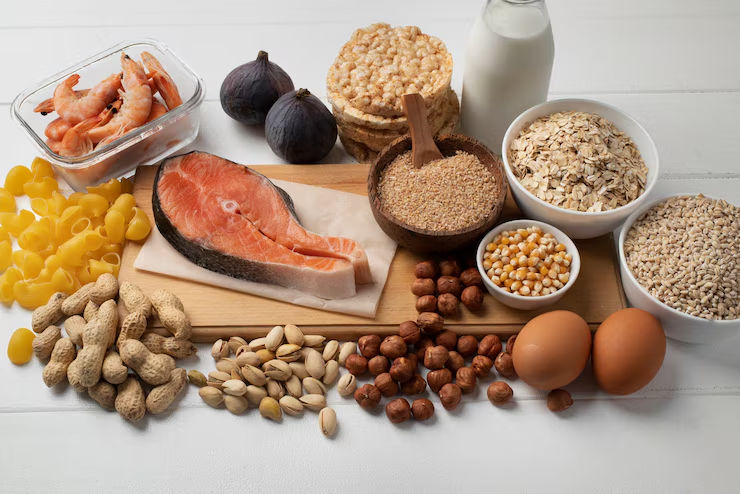
When looking at nutrition for brain health, choline stands out as a valuable nutrient. It helps maintain clear communication between brain cells and supports mental focus. Foods like eggs, liver, and soybeans are rich in choline and can easily be added to your diet. Including these foods regularly helps strengthen brain performance and supports overall cognitive health at every age.
Sources:
Eggs (especially the yolk)
Liver
Soybeans
Cauliflow
Magnesium
This important mineral plays a key role in keeping the brain and nervous system working properly. It supports healthy nerve function, helps regulate mood, and protects the brain from being overstimulated by nerve signals. A lack of this mineral may lead to issues like irritability, trouble focusing, or increased stress.
As part of good nutrition for brain health, getting enough of this mineral is very important. It helps keep brain activity balanced and supports emotional stability. Foods such as leafy greens, nuts, seeds, and whole grains are good sources. Adding these to your meals can help improve mental clarity, reduce stress, and support overall brain health in a simple and natural way.
Sources:
Pumpkin seeds
Almonds
Dark leafy greens
Avocados
Whole grains
Vitamin D
Vitamin D is an important nutrient with receptors found throughout brain tissue. These receptors help regulate many brain functions, including mood and mental clarity. Low levels of vitamin D have been linked to issues like depression, memory problems, and reduced thinking skills, showing how closely it is tied to brain health.
Including vitamin D as part of your nutrition for brain health can support better mood and cognitive performance. Sunlight is a natural source, but foods like fatty fish, egg yolks, and fortified dairy products also help. Making sure you get enough vitamin D each day is a simple way to support a healthier brain and maintain clear, balanced thinking over time.
Sources:
Sunlight exposure
Fatty fish
Fortified foods (milk, cereals)
Supplements
Iron, Zinc, and Iodine
These trace minerals play an important role in keeping the brain healthy and active. They help transport oxygen throughout the body, support DNA synthesis, and aid in proper thyroid function. Since the brain needs steady oxygen and hormonal balance to work well, these minerals are essential for mental clarity and energy.
As part of nutrition for brain health, getting enough of these trace minerals is key. They support brain development, focus, and memory by helping important processes run smoothly. Foods like seafood, lean meats, nuts, and whole grains are great sources. Including these in your daily meals can help maintain strong brain function and support overall mental well-being throughout life.
Sources:
Red meat and poultry
Shellfish
Legumes
Nuts and seeds
Brain-Boosting Foods
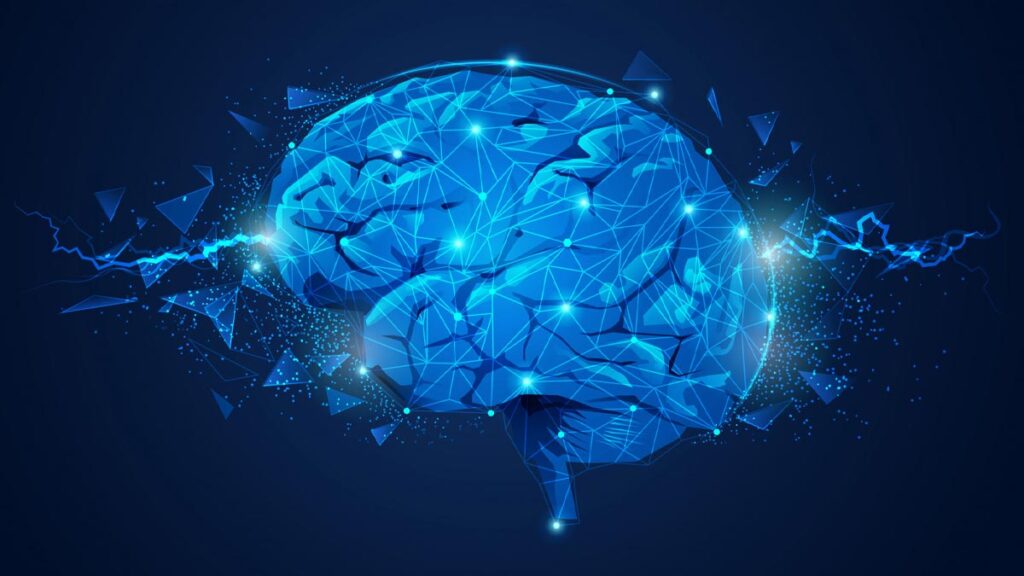
Here’s a closer look at some top foods scientifically proven to enhance brain health:
Fatty Fish
Rich in EPA and DHA, essential types of omega-3s, fatty fish are associated with reduced brain aging and cognitive decline.
Blueberries
Packed with antioxidants, blueberries delay brain aging and improve memory by enhancing communication between brain cells.
Turmeric
The curcumin in turmeric has powerful anti-inflammatory and antioxidant properties. It can cross the blood-brain barrier and may enhance mood and stimulate new brain cell growth.
Broccoli
Loaded with antioxidants and vitamin K, broccoli supports brain health by promoting cognitive function and protecting against damage.
Pumpkin Seeds
These seeds are tiny nutrient powerhouses, rich in zinc, magnesium, copper, and iron—all vital for brain function.
Dark Chocolate
Contains flavonoids, caffeine, and antioxidants that can enhance memory and mood. Moderate consumption is key.
Nuts and Seeds
Particularly walnuts, which contain high levels of DHA, nuts improve cognitive function and are linked to reduced risk of neurodegenerative disease.
Whole Grains
Provide a slow, steady supply of glucose to the brain. Choose oats, quinoa, and brown rice for sustained mental energy.
Oranges
Just one medium orange meets your daily vitamin C requirement. Vitamin C is crucial for preventing mental decline.
Green Tea
Contains caffeine and L-theanine, which together improve alertness, performance, and relaxation.
The Role of Hydration
Water is a vital, yet often overlooked, part of nutrition for brain health. Staying hydrated helps maintain proper brain function by supporting cell communication and nutrient delivery. Even mild dehydration can impact concentration, memory, and overall cognitive performance.
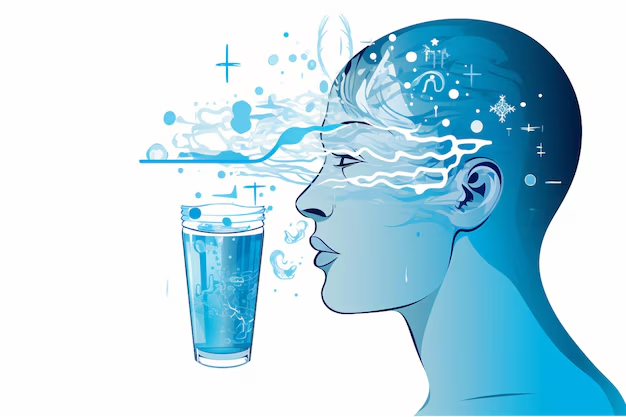
Drinking enough water throughout the day is essential for keeping the brain sharp and focused. Dehydration can lead to fatigue, difficulty concentrating, and slower mental processing. To support optimal brain health, aim to drink water regularly, especially during tasks that require focus. This simple habit can greatly improve mental clarity and cognitive function.
Tips for Staying Hydrated:
Drink water regularly throughout the day
Consume hydrating foods like cucumbers, watermelon, and citrus fruits
Limit diuretics such as caffeine and alcohol
Diet Patterns That Support Brain Health
Mediterranean Diet
A balanced diet rich in fruits, vegetables, whole grains, legumes, olive oil, and fish is essential for nutrition for brain health. These foods provide the nutrients needed to support brain function, improve memory, and boost overall cognitive performance.
Incorporating these healthy options into your meals helps protect the brain from oxidative damage, supports cell repair, and promotes mental clarity. By making these nutrient-dense foods a regular part of your diet, you can enhance your brain health and improve focus and memory over time.
Benefits:
Lowers risk of Alzheimer’s
Reduces inflammation
Promotes cardiovascular and brain health
DASH Diet (Dietary Approaches to Stop Hypertension)
Originally created to lower blood pressure, this diet also provides significant benefits for nutrition for brain health. By focusing on nutrient-rich, low-sodium foods, it helps improve brain function while supporting overall well-being.
The diet emphasizes fresh fruits, vegetables, whole grains, and lean proteins, all of which are essential for maintaining a healthy brain. These foods promote better memory, focus, and cognitive performance. Following this diet can not only benefit heart health but also support long-term brain function and mental clarity.
MIND Diet (Mediterranean-DASH Diet Intervention for Neurodegenerative Delay)
The MIND diet is a hybrid of the Mediterranean and DASH diets, specifically designed to support nutrition for brain health. It focuses on nutrient-dense foods that protect the brain and enhance cognitive function.
The MIND diet emphasizes foods like leafy greens, berries, nuts, whole grains, and fish, which are known to support brain health. By incorporating these brain-boosting foods, the diet aims to reduce the risk of neurodegenerative diseases and improve memory and focus over time.
Key components:
Leafy greens
Berries
Nuts
Olive oil
Limited red meat and sweets
Foods and Habits to Avoid
To maintain optimal brain function, it’s just as important to avoid certain dietary choices:
Processed Foods
Processed foods, which are typically high in refined sugars and unhealthy fats, can contribute to brain inflammation and cognitive decline. These types of foods disrupt brain function over time, leading to memory problems and a decrease in mental clarity.
Trans Fats
Trans fats, commonly found in margarine, packaged snacks, and fried foods, have been linked to memory loss and an increased risk of developing dementia. These unhealthy fats can damage brain cells and negatively affect cognitive performance as you age.
Excess Sugar
Consuming too much sugar over an extended period can lead to insulin resistance and increased inflammation in the body, which directly impacts brain function. This chronic sugar intake can impair memory and hinder the brain’s ability to perform complex tasks.
Alcohol Abuse
While moderate wine consumption may offer certain brain health benefits, excessive alcohol intake is toxic to brain cells and can seriously impair cognitive function. Long-term alcohol abuse leads to brain shrinkage and memory loss, impacting overall mental performance.
Lifestyle Tips for Optimal Brain Nutrition
Meal Timing
Eating regularly throughout the day helps maintain stable blood sugar levels and provides consistent mental energy. Skipping meals, especially breakfast, can lead to brain fog and sluggishness. A nutritious breakfast is essential for fueling your brain and setting the tone for mental clarity and focus throughout the morning. Proper meal timing is an important aspect of nutrition for brain health, ensuring the brain gets the energy it needs to perform at its best.
Portion Control
Overeating can lead to feelings of sluggishness and fatigue, which can negatively affect brain function. Practicing portion control is important for maintaining balanced energy levels. Eating balanced meals with the right amount of food can support sustained mental performance, making portion control a vital part of nutrition for brain health.
Mindful Eating
Being mindful of what you eat, how much, and when you eat plays a significant role in mental well-being. Avoid distractions like screens or eating when stressed, as it can interfere with digestion and cognitive function. Practicing mindful eating encourages better food choices and enhances your focus, contributing to overall nutrition for brain health.
Supplement Wisely
If your diet lacks essential nutrients, consider adding supplements such as omega-3 fatty acids, vitamin D, or B-complex vitamins. These nutrients are crucial for brain health, but it’s important to consult with a healthcare provider before adding them to your routine. Proper supplementation can complement your diet, supporting nutrition for brain health and helping you maintain optimal brain function.
Conclusion
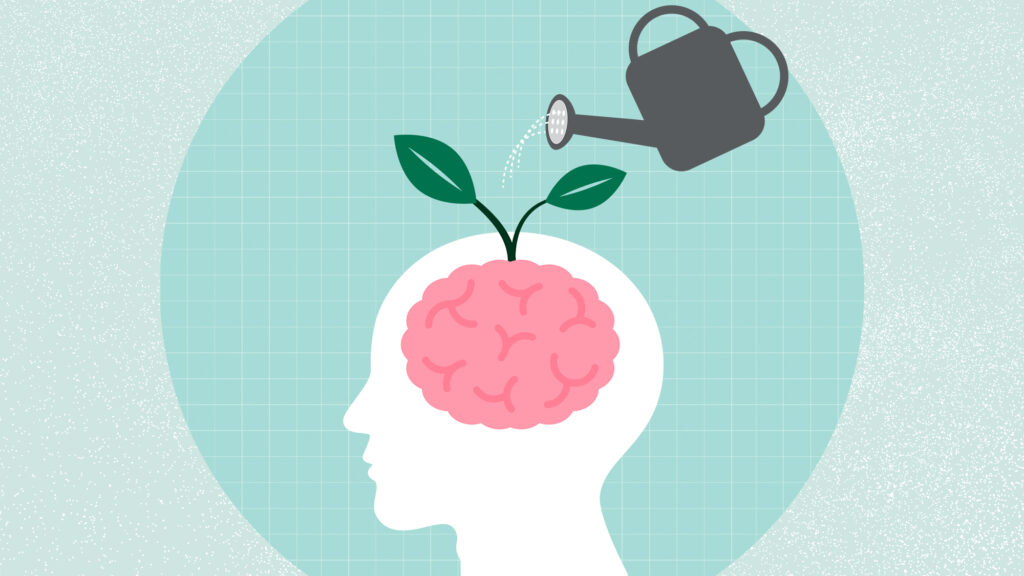
In conclusion, nutrition for brain health is vital for maintaining cognitive function and mental well-being. A diet rich in fruits, vegetables, whole grains, healthy fats, and lean proteins provides the essential nutrients that support brain activity, memory, and focus. Practicing regular meal timing, portion control, and mindful eating further enhances mental clarity and energy levels, ensuring the brain gets the fuel it needs throughout the day. Avoiding processed foods, excess sugar, and trans fats, as well as limiting alcohol consumption, helps protect the brain from inflammation and cognitive decline.
Additionally, supplementing your diet with nutrients like omega-3 fatty acids, vitamin D, and B-complex vitamins can provide added support for brain function, especially if your regular diet lacks these essential nutrients. However, it’s important to consult with a healthcare provider before introducing supplements. By making these informed and conscious choices, you can support long-term brain health and enhance mental performance.
FAQs
- What are the best foods to eat for improving memory and concentration ?
Answer: Foods rich in omega-3 fatty acids, antioxidants, and B vitamins are excellent for memory and focus. Top choices include fatty fish (like salmon), blueberries, walnuts, leafy greens, eggs, and whole grains. These nutrients support neurotransmitter function, reduce inflammation, and enhance blood flow to the brain. - Can certain diets help prevent Alzheimer’s or dementia ?
Answer: Yes. The MIND diet, a combination of the Mediterranean and DASH diets, has been shown to significantly reduce the risk of Alzheimer’s disease when followed consistently. It emphasizes foods like berries, leafy greens, whole grains, nuts, fish, and olive oil, while limiting red meat, butter, cheese, and sweets. - Is coffee or caffeine good or bad for brain health ?
Answer: In moderation, caffeine (found in coffee and tea) can improve alertness, mood, and cognitive performance. However, excessive intake can lead to anxiety, poor sleep, and dependence. The key is balance—1 to 2 cups of coffee a day is generally considered safe and potentially beneficial. - How does hydration affect brain function ?
Answer: Water is essential for brain performance. Even mild dehydration can impair concentration, memory, and mood. Aim for 6–8 glasses of water per day, and increase intake during exercise or hot weather. Hydrating foods like cucumbers, oranges, and watermelon also help. - Are supplements effective for boosting brain health ?
Answer: Supplements can help fill nutritional gaps but should not replace a healthy diet. Omega-3s, vitamin D, B-complex, and magnesium are among the most researched for cognitive support. Always consult a healthcare provider before starting any supplement regimen.

